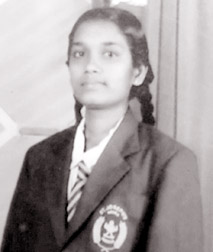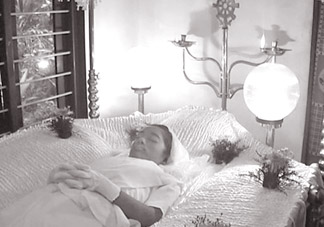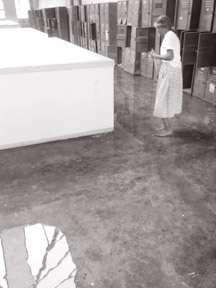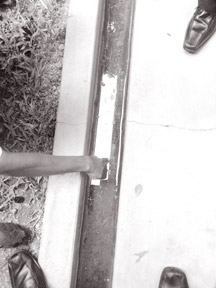Beware: dengue hits the city
Colombo University, schools, institutions under
surveillance:
By Ranil Wijayapala
 |
|
Dr Pradeep Kariyawasam |
Nisansala, the 21-year-old second year student of the Colombo
University Law Faculty might not have thought her dreams would come to
an abrupt end so early, as she was deeply engaged in her studies to
complete her assignment by the following day.
She worked tirelessly till late evening on May 29 disregarding the
rising temperature in her body after taking a few paracetamols from the
University Medical Centre as she was keen to finish her assignment.
Nisansala did not want her weakening body to defeat her courage and
determination and woke up as usual the following day, may be to hand
over the assignment on time. But her determination was not that strong
enough to get herself on her feet and to defeat the trouble-maker which
was weakening her body. She felt that she was going to fall. But leaving
no time for her to cry for help she collapsed on the floor.
Her friends rushed her to the Colombo National Hospital without
knowing that it was a fatal fall that Nisansala had.
It was only after admission to the hospital that they came to know
that Nisansala had been infected with dengue. At the time of admission
she was in critical condition and was treated at the Intensive Care
Unit.

Nisansala Samarasinghe |
She struggled with death but to no avail. Finally she had to bow down
to death on Wednesday, six days after admission to hospital, shattering
all her hopes for a brighter future. That was how the life of Nisansala
hailing from Debathgama, Kegalle who made a humble effort to make the
future of her family a brighter one after entering the Law Faculty of
Colombo University was snuffed out by the killer mosquito dengue roaming
around the vicinity of the university.
Finally, a bright student at the Colombo University Law Faculty had
to carry the message to her fellow students at the University that their
lives are in danger and at last as she breathed her last the entire
university community was alerted on the risk they were trapped in.
The Colombo Municipal Council Public Health Department which
inspected the university premises recommended to the university
authorities to close the Faculty of Law and the Faculty of Management to
clean the water collected in some of its buildings that have turned into
breeding ground for mosquitoes. The Faculties were closed till June 10
for the cleaning process.
According to the Chief Medical Officer the Colombo Municipal Council,
a parent of the Management Faculty of the Colombo University alerted
them about the situation at the Colombo University.
“A thick layer of collected water was there in one building due to
the leakage of the top floor and there were thousands of mosquito larvae
in it. So we recommended the University authorities to close down the
Faculties and do the cleaning up”, Chief Medical Officer of the CMC Dr.
Pradeep Kariyawasam said.
But, Colombo University is not the only institution that has become
breeding grounds for mosquitoes. The Public Health Department of the CMC
has found 62 schools in and around Colombo are having mosquito breeding
grounds.
“We inspected about 137 schools and took 11 schools to Courts and
issued notices to 51 schools. The eleven schools taken to Courts were
Ananda College, Isipathana Vidyalaya, Ananda Balika Vidyalaya, Asoka
Vidyalaya, Hindu Boys College, C.W.W. Kannangara Vidyalaya, Presbitarian
College, Zahira College (Construction site only), Sujatha Balika
Vidyalaya, St. John’s College and St. Anthony’s College”, he said.
|

The remains of Nisansala |
“We find mosquito larvae in these schools and that is why we took
them to Courts. Among the schools we issued notices were Mahanama
College, St. Peter’s, Lumbini Vidyalaya, Hindu Ladies College, Visakha
Vidyalaya, St. Clare’s School, Visakha Balika Vidyalaya, Sirimavo
Banadaranaike Vidyalaya, Devi Balika Vidyalaya, Bishop’s College,
Methodist College, Royal College and Thurstan College”, he said. The
inspection of schools did not come as a surprise but with an alarming
message to schools as CMC found that more than 70 percent of dengue
cases reported in the Colombo city limits are among the students between
the age of 5 and 20.
 |
| Law Faculty
building |
 |
| Drain in the
premises of the Management Faculty |
This year the CMC has recorded 1,450 cases of dengue. Compared to
last year there was a 23 percent increase in dengue cases in the city.
In the month of May there is 20 percent decrease in the dengue cases
compared to the corresponding month last year.
“That is going down. But what is alarming is that more and more
schoolchildren aged between 5 and 20 are getting ill. If we compare
statistics of the past few weeks it tells us that about 70 percent of
patients are children. That is why we started inspecting schools”, he
said.
That indicated there was something wrong with the system and we
needed to overcome it as the rainy season was continuing.
According to Dr. Kariyawasam the attitude of some school principals
in the Colombo city is a big barrier in facing this situation. “Many
principals think that they are not accountable for the situation. They
are not interested at all in dengue control programs. They are very
indifferent to this situation and are having an attitude that we the CMC
is welcome to do as we wish”, he said.
But with this situation the health authorities have decided to
recommend the Government to make it mandatory for the school principals
or the head of the institutions to be responsible for the mosquito
breeding grounds inside their premises.
“They have to see this situation because this is an infectious
disease. Although the number of deaths has gone down, a lot of people
suffer. Having many school children is the main issue”, he said.
The lack of space, darkness and large number of students are major
issues in the schools that made students vulnerable for this disease.
“From the Colombo district one third of the population is in the
Colombo city. So we have like one third of the patients in the Colombo
district also.
But Colombo should have more because the population density is quite
high in Colombo and few mosquitoes can infect a lot. As they say three
mosquitoes can infect 100 people”, Dr. Kariyawasam said.
“Although there is less mosquitoes in the city than the outskirts, we
have quite a high number of dengue patients. We have a large number of
educational institutes, a large number of government institutions and
people studying and working during day time. So the mosquito won’t stop
at biting one person, but will bite many. That is why we carried out
these raids”, he said. “Of course where there is development in the city
we find less number of dengue patients in the city”, he said. “If we
talk about the university premises the law Faculty incident, university
authorities and the students also responsible for the situation. The
university authorities can get the help from the students to clean up
the university environment”, he said. Dr. Kariyawasam lamented that
nothing is happening at ground level despite the initiation of a lot of
programs to combat dengue at grass roots level.
“We had taught so much but no one is practising them. That is an
attitudinal problem. I am not talking about the dengue disease. I am
talking about the environmental management as a whole. With little
effort we can create a nice environment for the children to study and
nice environment for people to live”, he said.
“As the CMC we can look into the complaints. We don’t have enough
staff to check each and every 120,000 premises in the city. Some
premises are one perch lands. The officers can’t go to each and every
place. We can join hands with the Forces and go and do large scale
inspections. Then we also can spray and fumigate the places”, he said.
To control the situation in Colombo schools the CMC is planning to spray
locally made BTI.
“We have bought a truck mounted machine and we are going to spray BTI
to all the schools in the Colombo city. We will have 147 schools and we
will somehow spray all the schools”, he said. But that alone will not
solve the problem. The schools have to work with the neighbouring people
to create mosquito free zones 100 yards to 150 yards radius from the
school.
“We did a program like this in 2006 where the number of students with
dengue went down by 40 percent. That is a significant number. I think
they all should do this and also the government institutions also can do
things like that”, he said.
“With the continuation of the rain pattern I feel that by end of
June, July we will have a massive outbreak. That is why we want to stop
it now. In the next few weeks we will cover big land areas than the
numbers of premises we cover. Then we can control the disease”, Dr.
Kariyawasam said.
Meanwhile, the Colombo University following the report of dengue
breeding grounds has also initiated a number of programs to prevent the
spreading of dengue.
According to A. Sarweswaran, Senior Lecturer, Faculty of Law of the
Colombo University, the university authorities are discussing to have a
log book to report the mosquito breeding grounds in the university
premises for the relevant officials to take action.
“In addition a shramadana has also been organised to clean the
university premises on Saturday”, he said.
He said though the academic staff is not responsible for this
situation, if the students and teachers maintain good communication,
this kind of problem can be solved.
He said that the university will also seek the support of the other
institutions in this regard.
|


